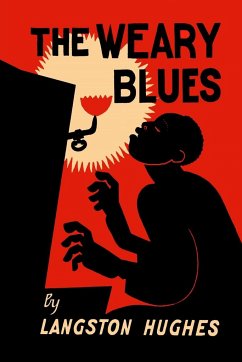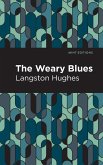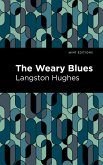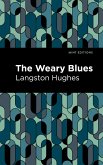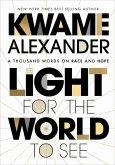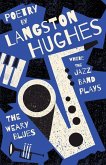2022 Reprint of the 1926 Edition. Full facsimile of the original edition and not reproduced with Optical Recognition Software. With an introduction by Carl Van Vechten. The Weary Blues is Langston Hughes's first published collection of poems, immediately celebrated as a tour de force upon its release. First published in 1926, the collection of poetry remains a critically acclaimed literary work and still evokes a fresh, contemporary feeling and offers a powerful reflection of the Black experience in Harlem in the 1920s. From the title poem "The Weary Blues," echoing the sounds of the blues, to "Dream Variation," ringing with joyfulness, to the "Epilogue" that mimics Walt Whitman in its opening line, "I, too, sing America," Hughes writes clearly and colorfully, and his words remain prophetic and relevant today. Langston Hughes was only twenty-four when he published this collection of poems. The poems included here blend vernacular speech and musical rhythms to offer a bracing perspective on the African American experience. Traversing a wide range of settings-including the jazz clubs of Harlem, expansive natural landscapes, and seaside taverns-Hughes's voice as a poet ties these various places together. The collection's themes are equally wide-ranging: Hughes explores the depth of the soul in "The Negro Speaks of Rivers," the pain of endurance in "Mother to Son," and death in the title poem's haunting requiem for a weary blues singer. Taken together, these poems offer a singular expression of joy, pride, and anguish from one of the leading voices of the Harlem Renaissance. Contents: Introducing Langston Hughes to the Reader / Carl Van Vechten -- Proem -- pt. I. The Weary Blues -- The Weary Blues -- Jazzonia -- Negro Dancers -- The Cat and the Saxophone -- Young Singer -- Cabaret -- To Midnight Nan at Leroy's -- To A little Lover-Lass, dead -- Harlem Night Club -- Nude Young Dancer -- Young Prostitute -- To a Black Dancer -- Song for a Banjo Dance -- Blues Fantasy -- Lenox Avenue : Midnight -- pt. II. Dream Variations -- Dream Variation -- Winter Moon -- Poeme d'Automne -- Fantasy in Purple -- March Moon -- Joy -- pt. III. The Negro Speaks of Rivers -- The Negro Speaks of Rivers -- Cross -- The Jester -- The South -- As I Grew Older -- Aunt Sue's Stories -- Poem -- pt. IV. Black Pierrot -- A Black Pierrot -- Harlem Night Song -- Songs to the Dark Virgin -- Ardella -- Poem-To the Black Beloved -- When Sue Wears Red -- Pierrot -- pt. V. Water-Front Streets -- Water-Front Streets -- A farewell -- Long Trip -- Port Town -- Sea Calm -- Caribbean Sunset -- Young Sailor -- Seascape -- Natcha -- Sea Charm -- Death of an Old Seaman -- pt. VI. Shadows in the Sun -- Beggar Boy -- Troubled Woman -- Suicide's Note -- Sick Room -- Soledad -- To the Dark Mercedes -- Mexican Market Woman -- After Many Springs -- Young Bride -- The dream Keeper -- Poem (To F.S.) -- pt. VII. Our Land --Our Land -- Lament for Dark Peoples -- Afraid -- Poem-For the Portrait of an African Boy -- Summer Night -- Disillusion -- Danse Africaine -- The White Ones -- Mother to Son -- Poem -- Epilogue.
Hinweis: Dieser Artikel kann nur an eine deutsche Lieferadresse ausgeliefert werden.
Hinweis: Dieser Artikel kann nur an eine deutsche Lieferadresse ausgeliefert werden.

